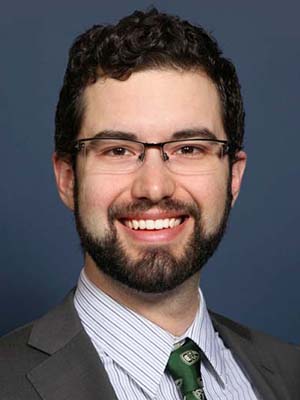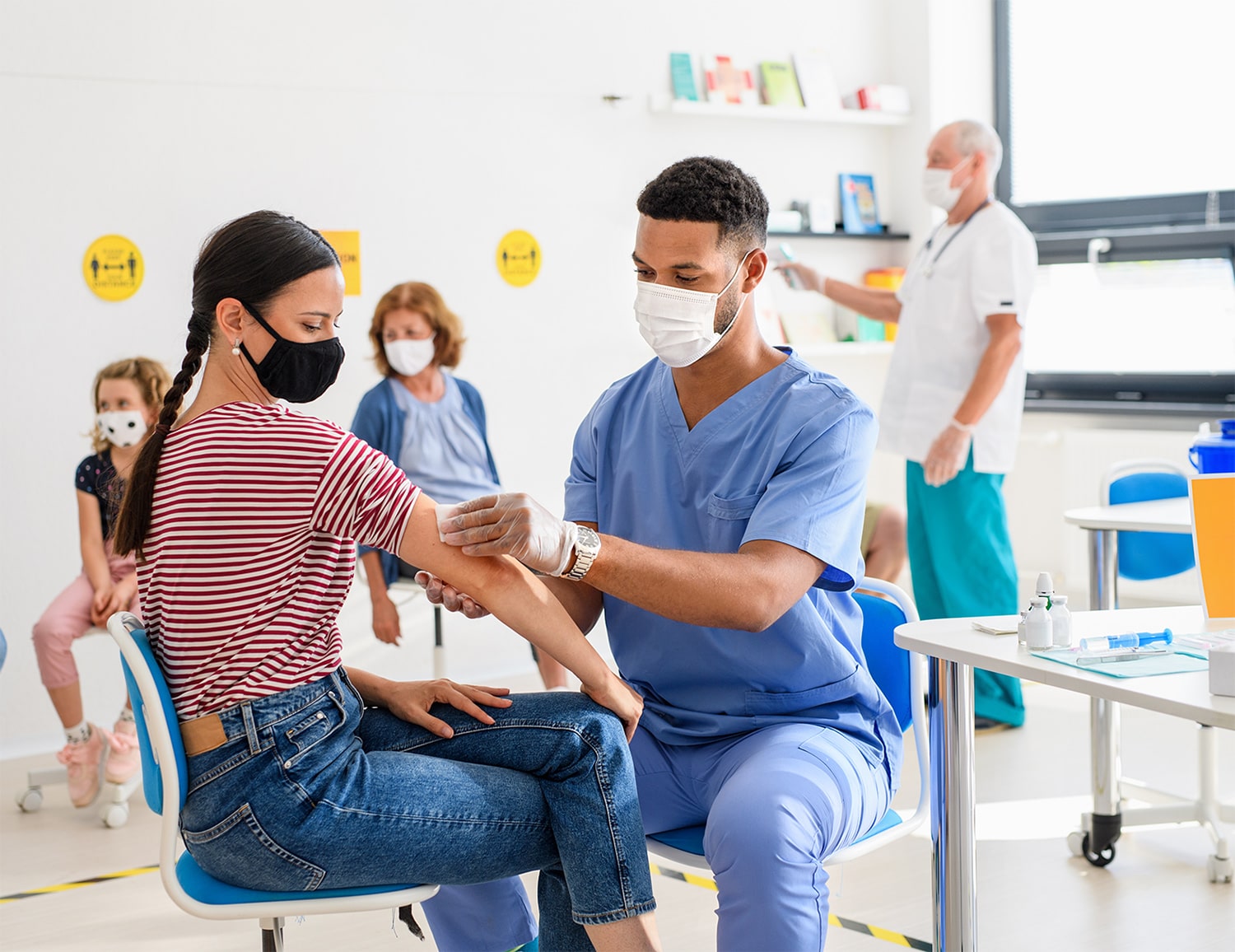
Nicholas Warren, PhD
IN THE EARLY MONTHS of the COVID-19 pandemic, the vast majority of cancer screenings and clinical trials were stopped, in part out of fear that vulnerable patients could be infected while seeking care. By the end of 2020, health clinics and cancer centers had adapted to the new normal by increasing the use of telehealth and taking measures to prevent infections during in-person appointments.
However, many people are still hesitant to enter a medical complex. There is concern that these disruptions will lead to later-stage cancer diagnoses and more cancer deaths, as well as a slower pace in developing new therapies for years to come. The key to restoring momentum against cancer is ensuring that enough people are vaccinated against COVID-19 so that the virus is brought under control and patients feel comfortable coming back to the clinic.
Confidence in vaccines has steadily improved, but a large number of people remain skeptical. In an April 2021 survey by the Kaiser Family Foundation, 65% of U.S. adults surveyed were already vaccinated or would get vaccinated as soon as possible. Meanwhile, 15% said they would “wait and see,” 6% would get vaccinated if required, and 13% would “definitely not” get vaccinated. A separate survey in December 2020 by the Leukemia & Lymphoma Society found close to one-third of patients with blood cancers surveyed were unlikely to get a vaccine or unsure about getting vaccinated. These findings suggest there is a critical need to build confidence in vaccines to avoid new surges of COVID-19.
Reasons for vaccine hesitancy vary greatly, but common concerns among people with cancer include limited clinical trial safety and efficacy data for these patients, worries about side effects, and concerns about potential interactions with anti-cancer therapies. It is normal to have these concerns, and they deserve to be addressed.
While only a few hundred people with cancer were included in COVID-19 vaccine clinical trials, real-world evidence from millions of vaccinated people shows the vaccines primarily cause only mild side effects. The Centers for Disease Control and Prevention and the Food and Drug Administration operate the Vaccine Adverse Event Reporting System, which allows doctors and patients to report adverse events associated with the vaccines. Mild side effects—such as fatigue, muscle aches and fever—are fairly common, especially after a second dose in younger patients. Fortunately, severe reactions are exceptionally rare, occurring following less than 1 in 200,000 vaccine doses. Additionally, there is very little evidence that the vaccines interfere with anti-cancer therapy.
In terms of vaccine efficacy, some patients with suppressed immune systems due to blood cancers or active cancer treatments are concerned that they may not gain immunity. Fortunately, two studies in April 2021 found that the vast majority of patients with solid cancers and many with blood cancers developed antibody and T cell responses to COVID-19 vaccines. The patients least likely to respond to the vaccine were those with blood cancer undergoing active treatment. Therefore, the National Comprehensive Cancer Network recommends most patients with cancer and their caregivers be vaccinated as soon as possible, but patients with blood cancers should wait until their immune systems have recovered following therapy. Given a possible delay in vaccination for these patients, it is even more important for household members and caregivers to get vaccinated to protect their loved ones.
COVID-19 vaccines have surpassed even the most optimistic projections of safety and efficacy and provide a light at the end of the tunnel of this devastating pandemic. The rapid pace of development for the mRNA COVID-19 vaccines made by Pfizer-BioNTech and Moderna was made possible by decades of research into developing vaccine technology to treat cancer. When the pandemic is finally behind us, we can return our full attention to curing all cancers.
Cancer Today magazine is free to cancer patients, survivors and caregivers who live in the U.S. Subscribe here to receive four issues per year.





